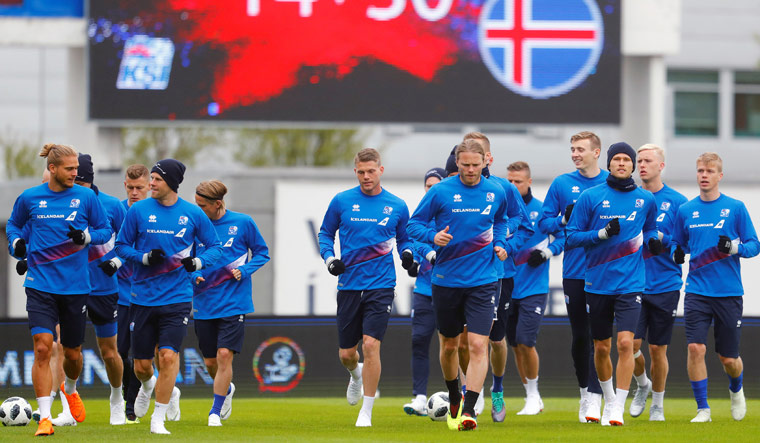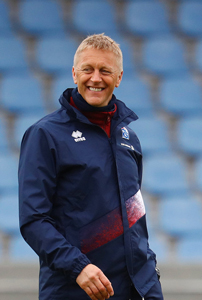Iceland’s shock 2-1 win over giants England at the 2016 Euros was one of the tournaments unlikeliest success stories. Coached by a part-time dentist, with an ex-film director in goal and a population of just 300,000, Iceland had no business beating a much-hyped England team full of young superstars. However, their resolve, determination and teamwork won over the hearts of football fans world over and announced the arrival of Iceland on the global stage.
After qualifying for the 2018 FIFA World Cup, Iceland, the smallest nation ever to compete, will look to make its mark on football's biggest stage.
The story of Iceland is one of hard work and perseverance. Merely a decade ago, Iceland was languishing in the bottom rungs of world football. In fact, as recently as 2014, heading into the World Cup qualifications, Iceland was ranked alongside countries like San Marino and Andorra. Due to its harsh climate, it becomes virtually impossible to play football in the winter months. This along with the fact that Iceland receives a meagre four hours of daylight in the winter makes it difficult to develop any sort of football culture in the country. However, a massive overhaul in the country’s Football Association (KSÌ) saw the construction of more than 200 all-weather stadiums throughout the country, as well as boasting around 500 UEFA B licensed coaches for children up to the age of 16. All these advances have helped a country like Iceland, a third of whose population can fit inside Wembley Stadium, make serious waves in world football.
The architects of Iceland’s rise to prominence are their current head coach, Heimir Hallgrímsson and his predecessor Lars Lagerbäck, who resigned after Euro 2016. Together, they have moulded a compact and defensively driven team with a piercing attack. Hallgrímsson, who initially fielded a classic 4-4-2 formation, has been known to shift towards a more modern 4-5-1 formation against some of the larger teams. This provides a free role for their star player, Everton’s Gylfi Sigurðsson, who is yet to recover from a knee injury. Coming of a stellar season with Premier League outfit Burnley, Jóhann Berg Guðmundsson will also provide a threat from the wings. With a tenacious defence at the heart of their philosophy, expect Iceland to wear teams down with their disciplined yet physical style in the World Cup. They will look to punish opponents mainly on the counterattack and from set pieces. Their long throw-ins particularly can prove deadly for a lax defence, as England can testify.
One thing the players can be guaranteed every match is the deafening cheers from their ever loyal supporters. Around 10 per cent of the entire Icelandic population went to France to lend support to their team at Euro 2016. It was there that their now famous, “Thunderclap Celebration” went viral.
Having been drawn in a tough Group D with a behemoth like Argentina and World Cup veterans Croatia and Nigeria, there will be no room for error should Iceland have any hope of making it past the group stages. One possible edge that the Icelandic players would have is the familiarity of playing in cooler conditions. This experience could prove crucial especially since most of the Argentinean and Nigerian players would be used to playing in far more temperate conditions.
Iceland is a prime example that with the right direction and prudent investment, it is possible for any country to qualify for the FIFA World Cup. With a gritty, hardworking team and passionate die-hard supporters, Iceland may just be this World Cup’s Cinderella story.



